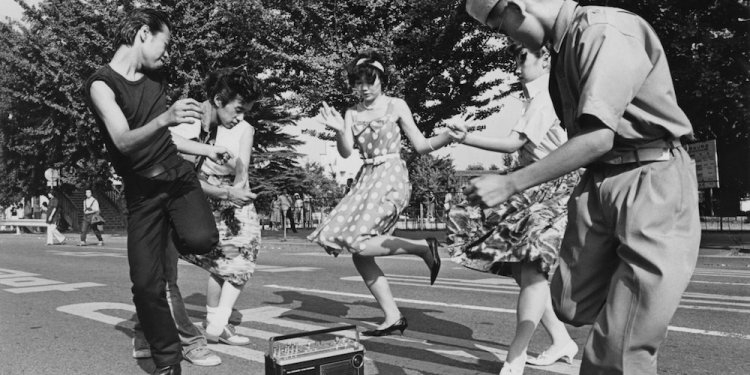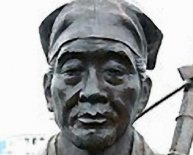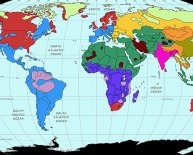
Japanese Cultural History
 The pottery for the Incipient and Initial times includes numerous deep urnlike vessels with tapered bullet-shaped basics. In the Early period the vessels of east Japan become about cylindrical in shape, with flat basics, therefore the walls have an admixture of vegetable fibre. In the centre duration there have been rapid advances in pottery strategies; the pots stated in the main hill places during this period are often regarded as the best possible of this entire Jōmon period. The surfaces of the typically cylindrical vessels tend to be covered with complex habits of raised outlines, and powerfully decorative projections rise through the wheels to make manages. From the center duration onward there's increasing variety within the kinds of vessels, and a clear distinction created between top-notch ware using sophisticated strategies and simpler, strictly functional pots. The total amount of the latter type increases steadily, planning the way in which when it comes to change to Yayoi pottery.
The pottery for the Incipient and Initial times includes numerous deep urnlike vessels with tapered bullet-shaped basics. In the Early period the vessels of east Japan become about cylindrical in shape, with flat basics, therefore the walls have an admixture of vegetable fibre. In the centre duration there have been rapid advances in pottery strategies; the pots stated in the main hill places during this period are often regarded as the best possible of this entire Jōmon period. The surfaces of the typically cylindrical vessels tend to be covered with complex habits of raised outlines, and powerfully decorative projections rise through the wheels to make manages. From the center duration onward there's increasing variety within the kinds of vessels, and a clear distinction created between top-notch ware using sophisticated strategies and simpler, strictly functional pots. The total amount of the latter type increases steadily, planning the way in which when it comes to change to Yayoi pottery.
Jōmon home sites being present parts of the nation. They can be categorized into two types: one, the pit-type home, consisted of a low pit with a flooring of trodden earth and a roof; the other had been produced by laying a circular or oval floor of clay or stones on the surface associated with surface and covering it with a roof. Keeps of these dwellings were present groups including five or six to many dozen, apparently representing how big personal settlements during the time. Most of these settlements form a horseshoe shape, with an area at the heart that seemingly have already been employed for communal reasons. Nothing specific is well known, however, regarding personal or political organization at this period. It can be deduced that each and every family was comprised of a few nearest and dearest hence the settlement made up of these types of families had been led by a headman or shaman.
The people of Jōmon period lived mainly by hunting and fishing and also by collecting edible peanuts and roots. The look of large settlements from Middle duration onward was interpreted by some scholars as implying the cultivation of certain types of crop—a theory seemingly sustained by that the chipped-stone axes with this duration are not sharp but seem to have been employed for searching soil. Doubtless there was some kind of cultivation: starchy yams and taro, probably originating from the continent, were raised, the starch from their store formed into a type of breads. This incipient farming seems associated with a cultural florescence in mid-Jōmon times that lasted about 1, 000 years.
Weaving of fibres had been nevertheless not known, though woven baskets have-been discovered online dating into Early period. Archaeological findings suggest that garments were mainly made of bark. System ornamentation included bracelets made from seashells, earrings of rock or clay, and necklaces and locks ornaments of rock or bone tissue and horn. From latter an element of the duration, the customized in addition spread throughout the archipelago of removing or sharpening particular teeth, probably carried out as a rite establishing the attainment of adulthood.
No specifically elaborate rites of evolved, together with dead were buried in a tiny pit dug nearby the dwelling. Often your body had been hidden using its knees used or with a stone clasped to its chest, an operation that most likely had some spiritual or magical relevance. Numerous clay figurines happen found, many representing feminine kinds which were most likely magical items involving ancient virility cults.
Consistently certain scholars have actually advertised the bearers regarding the Jōmon tradition had been ancestors associated with , a native folks of north Japan. Scientific investigation associated with bones of Jōmon folks completed since the beginning of the 20th century, but has disproved this theory. The Jōmon individuals might be known as proto-Japanese, and additionally they were spread for the archipelago. Despite certain variations in personality as a result of variations in duration or place, they appear to have constituted one cultural stock with additional or less constant characteristics. The current Japanese people were made by an admixture of particular strains through the Asian continent and through the Southern Pacific, with adaptations built in accordance with ecological modifications. There is research to suggest that individuals moved eastward across Siberia and joined Japan via and Hokkaido. Nothing can yet be shown concerning their commitment utilizing the individuals of the Pre-Ceramic duration, nonetheless it may not be asserted that they had been totally unrelated.
The Yayoi duration (c. 300 bce–c. 250 ce)
The newest that arose in Kyushu, while the Jōmon tradition ended up being however undergoing development elsewhere, distribute gradually eastward, overwhelming the Jōmon culture because it moved, until it achieved the north districts of Honshu (the largest island of Japan). Title Yayoi derives through the title associated with the area in Tokyo in which, in 1884, the unearthing of with this kind very first received the interest of scholars. Yayoi pottery had been fired at greater conditions than Jōmon pottery and was fired up tires. It's distinguished partly by this marked advance in strategy and partly by an absence of the proliferating design that characterized Jōmon pottery. It created, simply speaking, as pottery for practical usage. It is followed closely by steel items and it is associated with the damp (i.e., irrigated) cultivation of rice, considered to have begun around the end of this Late Jōmon duration. Culturally, the Yayoi presents a notable advance on the Jōmon duration and is thought to have lasted for many five or six centuries, from about the third century bce toward 2nd or third century ce.
















